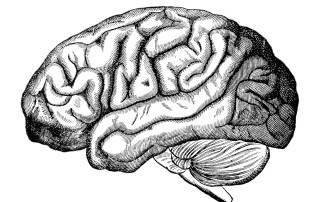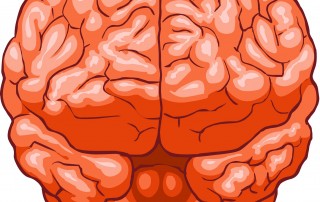The purpose of this post is to introduce a new way of thinking about problematic behavior. Many of us struggle to curb thoughts or behaviors that are ineffective at best and destructively corrosive at worst. We try and try again, only to meet with failure. Most of us throw our hands up and either set about resigning ourselves to the seemingly inevitable disappointing outcome of our existence, or continue to push against the same brick wall, using the same approach that has already proven so ineffective. This is the cycle of pain. Kathryn Schulz, journalist and author spoke at a TED conference about the experience of being wrong. She asked participants in the audience to describe how it felt to be wrong. Predictable answers ensued, focusing on the theme of embarrassment or similar emotions. She then pointed out that this was the experience of discovering that you have made a mistake, not the experience of actually making the mistake. She stated that the actual act of being wrong carries with it no emotion of its own; it only carries the emotion and meaning that we give to it. I would take Schulz’s idea a step further and point out that […]
The Positive Outcome of Treatment for ADHD
With enthusiastic permission of the client, I am posting a letter written to me regarding the change that has taken place in this individual’s life as a result of being adequately treated for a lifelong history of ADHD. This client was recently diagnosed as an adult (in his 40s). His comments are dramatic but also very typical of my clients who have sought help for ADHD. Feel free to share it with people you know. “Ever since I was a young boy, I had a feeling of emptiness, like I was missing something inside of me. I always felt like everything I did was wrong or not good enough. I would always get in trouble in school and at home. I couldn’t control my behaviors, my happiness, and my mouth. I felt less-than and unable to make anyone or myself happy. I was so bad that I hated myself and also thought the world would be a better place without me, almost to the point of not wanting to live. I used drugs later on to mask my feelings so I didn’t have to feel the way I did. As I’ve lived this way, my whole life and just accepted […]
Online Pornography Addiction
One of my specialties in counselling is the area of sexual addiction, most specifically pornography. If you or someone you know is struggling with this issue, please take the time to watch these two video clips. In addition, here is a link to a quick screening test. If what you see and hear triggers something inside you, please give me a call. There’s no need for shame, just a need for help and understanding.
Living with ADHD
Here is an interesting documentary on ADHD. It shows some extreme cases and some situations that are very typical of a household with someone who struggles with ADHD. See if you can sit through the whole thing 🙂
Validating Your Brain: The Epic Conclusion
Click here for part 1 and part 2 Up to this point, my last two posts have tried to demonstrate a few key realizations: The brain is working primarily on an unconscious level. Because of this, we are rarely as aware of what we are doing and why as we would like to believe. The brain is well-intentioned and is trying to accomplish its sole purpose, surviving the moment. Because it is focused on surviving the moment, it will make decisions that favour short-term benefits EVERY SINGLE TIME, unless we override it. Because the brain operates primarily on the level of our unconscious, it usually communicates with our conscious brain indirectly. Often, it is trying to get our attention and we are not listening to it, which leads to the perpetuation of problem behaviors, thoughts, and feelings. If we learn to really listen to our brain, it will tell us everything we need to know. The final piece of this trilogy will attempt to focus on the final point I’ve listed above. Specifically, I’m going to be demonstrating how working together with your brain, instead of fighting against it, is the surest way to mental health and a better experience […]
Dr. Gabor Mate on ADHD (or ADD)
Dr. Gabor Mate expresses it very well. If you have questions, drop me a line.












Recent Comments